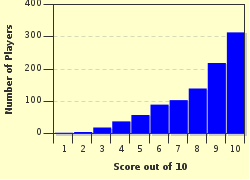Quiz Answer Key and Fun Facts
1. November 28, 1660.
"Father did attend a lecture by Mr Wren this day, and bade us heed; he and his acquaintances: in truth, Sir Moray, Mr Wren and Viscount Brouncker, hath begun a new academy for "Promotion and Improvement of Natural Knowledge". Indeed, I do not understand, but Father is quite inspired."
What scientific academy was formed in 1660 with Robert Hooke as its first Curator of Experiments?
2. April 23, 1661.
"'Twas St Georges day and much ado, for the King was crowned this day. Such richness of cloth, the likes of which I have not seen. The King looked very fine, in robes, with crowne and sceptre, under a canopy carried by Barons. The champion on horseback, the Nobility in their Parliament robes and the feast with food and ale enough for all of London to partake. Indeed, most all of London did!"
Who was this English monarch?
3. May 21, 1662.
"The King doth take a wife today and wedded the Portuguese Princess. Our Queene, nay, Consort, (for she is not a Protestant), looked well in her finery, but rather old, if 'tis not treasonable. Indeed, Her Grace is three and twenty!"
Which Princess married the English monarch?
4. May 7, 1663.
"Oh dreary day. Miss Crawford did desire a Latin discourse, and thus did we bide our time.
Mother and Father went thither by coach to Drury Lane, to attend the new playhouse just begun this day. Such a diversion 'twould be to witness the spectacle, with scenes of Mr Fletcher's "The Humourous Lieutenant"."
Which London theatre opened its doors for the first time in 1663?
5. August 30, 1664.
"Father attended a science gathering this day, and was much pleased on return, for Mr Willis writ of his exploration of the brain, with diagrams by Mr Wren. Mr Newton too did come to dine with us upon Venison pasty. His discourse on falling apples was diverting, though methinks, I confess, he did not seem so pleased. A minor problem, says he, on how such formulae to be writ, so he may publish his discovery."
What did Mr (Issac) Newton hypothesise in 1664?
6. June 28, 1665.
"The sickenesse hath increased mightily, I this day see many houses, marked with red cross upon the door, and "Lord have mercy upon us" writ there. Thence we to the country, lest we should succumb."
What illness invaded London in 1665?
7. September 3 1666.
"Am very ill at ease this eventide. The conflagration neared, thus we removed to Oxfordshire. Our odious neighbour, Mr Pepys, hath dug a great hole in the garden and laid in there papers and wine and cheese.
How horridly the sky looked, as I would imagine the gates of hell. Should I be less melancholy, what wit 'twould be, that place in Pudding Lane."
Which place in Pudding Lane was, rather ironically, the seat of Great Fire of London?
8. June 1, 1667.
"Last eventide I presented to society at Lady Jemima Montagu's ball.
This day, Miss Crawford hath given me a gift: a poem. But lo! An exceedingly long poem by Mr Milton. "'Tis of great doctrinal import" says she. "'Tis ten books", says I. But nay, 'tis only one. Methinks mayhap be overlong afore I finish!"
What great poem did John Milton publish in 1667?
9. August 26, 1668.
"Such a to-do this day! Such bangings and yelling from the town 'til Mother was all aflutter. Methinks 'twas a fyre, but none to be seen. Thither went Father to see, and 'twas a construction blewn up! 'Tis good, for the building was in ever great danger of collapse, and now shall be replaced."
Which building, damaged by the Great Fire in 1666, was finally demolished in 1668?
10. September 20, 1669.
"The banns have been read, I shall be wed afore Michaelmas. Mother and Father are much pleased, as is our King, for my betrothed became the astronomy Professor at Oxford many years past. 'Tis also an architect of great esteem, hath assumed the grand title of Royal Architect this past sennight."
Who is young Faith marrying?
Source: Author
leith90
This quiz was reviewed by FunTrivia editor
Exit10 before going online.
Any errors found in FunTrivia content are routinely corrected through our feedback system.


